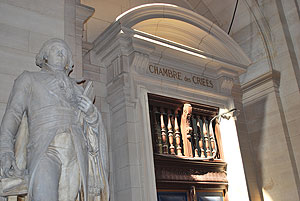In 2010, a group of talented young musicians from across the globe gathered in Nairobi, with the financial support of Transparency International and Jeunesses Musicales International. Their mission: to write and record a viral hit that would not only communicate the gravity of corruption to young people (a crucial demographic for anticorruption activists), but would also make them want to share the tune with their friends. The diverse band of artists left the studio with “Against Corruption,” a reggae jam complete with Lebanese Arabic hip-hop verses and flamenco-tinged guitar riffs. You can watch the music video here, or listen to the audio here.
Despite its all-star cast and catchy hook, however, the big budget music video has been viewed just over 600 times. This kind of failure to turn big anticorruption dollars into effective campaigns that generate excitement, activism, and action on the ground isn’t unique. The anticorruption community’s proposed revolution may well be broadcast, but its soundtrack will be probably be, dare I say, boring. And as a result, few will tune in.
Why is that? What makes it so much easier to capture an audience’s imagination when speaking about issues like the refugee crisis or modern-day slavery than to tell the story of corruption, whose effects are similarly destructive?
